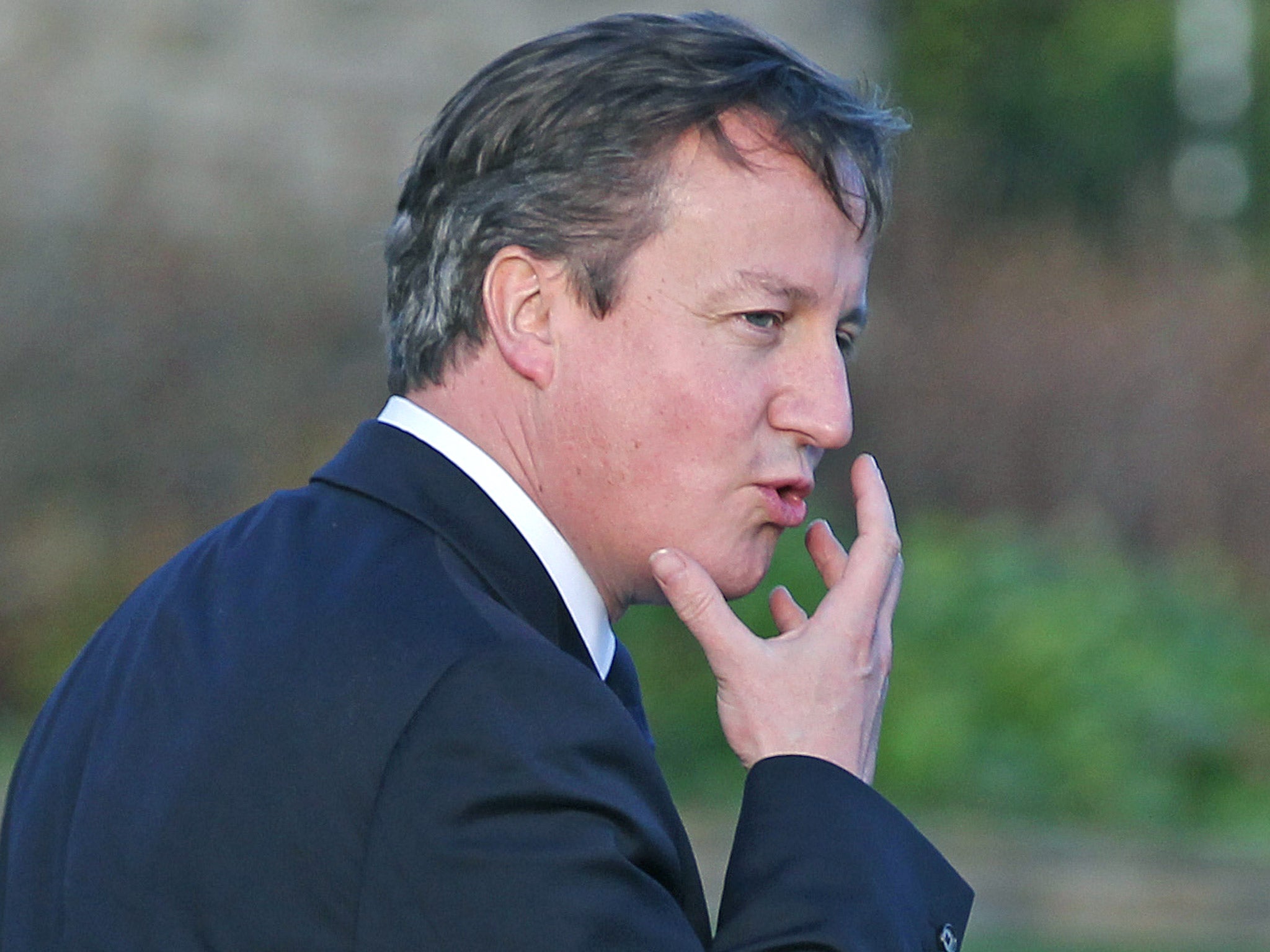David Cameron faces EU charge of hypocrisy over demand for cuts
PM seen as main stumbling block to a deal as 27 leaders meet at Brussels summit

David Cameron will today demand cuts in the cost of running the European Union as he begins what could be a marathon summit on the EU's budget of almost €1 trillion for 2014-20.
But the Prime Minister has angered Brussels officials and politicians, who have accused him of hypocrisy and creating a sideshow because administration costs amount to only 6 per cent of the EU's total spending. Mr Cameron is expected to target the pay and perks of Eurocrats, after figures showed 4,000 European Commission officials earn more than €100,000 a year.
EU officials have hit back, claiming British civil servants in Brussels enjoy much more generous terms and conditions and often turn down Commission jobs. Martin Schulz, President of the European Parliament, has challenged the UK Government to publish such a comparison – without success.
In a protest letter to Mr Cameron, Malcolm Colling, President of the Association of Independent Officials in the Commission, urged him to "rise above petty polemics" and halt the attacks on EU staff. He said the 23,800 Commission officials were outnumbered by the 33,000 staff employed by Leeds City Council.
Mr Cameron will hold talks in Brussels this morning with Herman Van Rompuy, President of the European Council, who is trying to broker a deal between the leaders of the 27 EU nations. Hopes of a breakthrough receded last night. In an attempt to satisfy the UK, Germany and the Netherlands, who are urging budgetary restraint, Mr Van Rompuy has cut the original €1,047bn seven-year budget proposed by the Commission to €973bn. But this has provoked a backlash from France, Spain, Italy and other countries who are fighting to keep their EU farm subsidies and funds for poor regions.
The complex negotiations could run on into the weekend. After meeting the 27 leaders individually, Mr Van Rompuy is likely to revise his plans when they sit down for a working dinner tonight. He may shave another €20bn off the draft budget, including cuts in officials' salaries and perks.
Mr Cameron, who has demanded a freeze in EU spending, is seen as the main stumbling block to a deal. Grant Shapps, the Conservative Party chairman, appeared to raise Britain's demands yesterday, saying that "we intend to at least freeze, if not cut" the UK's contribution to the EU. That looks impossible, since Britain's payments seem certain to rise in the next few years under a previously-agreed formula.
Yesterday, Mr Cameron told the Commons he would fight to defend the rebate on Britain's EU contributions won by Margaret Thatcher in 1984, which will come u nder pressure at the summit. He said the rebate was "an incredibly important part of Britain's position in Europe and making sure we get a fair deal" and criticised Tony Blair for giving away "almost half of it" in the last EU budget negotiation in 2005.
Q&A: The EU budget talks
Q. What will the 27 EU leaders discuss at the Brussels summit starting today?
A. A spending limit of almost €1 trillion for the seven-year period from 2014-20. Herman Van Rompuy, who will chair the meeting as president of the European Council, has trimmed the European Commission's draft budget of €1,047bn to €973bn – less than the EU will spend in the 2007-13 period.
Q. Is David Cameron the stumbling block to a deal?
A. The Prime Minister, under pressure from Conservative Eurosceptic MPs, is the main threat to an agreement. Although the EU budget ceiling may fall, Britain's net contribution to it (€7.3bn last year) is likely to rise over the next few years under a previously agreed formula. However, the UK's precise contribution will not be fixed at the summit.
Q. Do other EU countries have their own issues?
A. Yes. Mr Cameron is not the only leader threatening to veto a deal, which must be agreed unanimously. France, Spain, Austria and Latvia are among nations which want higher farm subsidies than Mr Van Rompuy is proposing. Denmark is demanding a UK-style rebate on its EU contributions. Poland, Romania and Italy want to safeguard funds earmarked for poor regions.
Q. Will the rebate on the UK's contributions to the EU survive?
A. Yes. Mr Van Rompuy wants to cut it from about €3.6bn to €2.6bn a year. Mr Cameron can veto any change, but would alienate other EU members if he did not make concessions in other areas.
Q. What happens if there is no agreement?
A. Talks would resume early next year. If there is still no deal then, budgets would be rolled over on an annual basis. Decisions would then be taken by qualified majority voting, depriving Britain of its veto.
Q. Deal or no deal?
A. Too early to tell. The summit haggling could drag on into the weekend. Brussels diplomats say agreement is possible: EU budget figures are so opaque they can be fudged to allow everyone to claim victory. Mr Cameron may be tempted to repeat the veto he wielded last December on plans for fiscal union. However, if he wins more concessions, he may sign up now rather than risk bigger EU budgets being approved on an annual basis.
Andrew Grice
Join our commenting forum
Join thought-provoking conversations, follow other Independent readers and see their replies
Comments
Bookmark popover
Removed from bookmarks